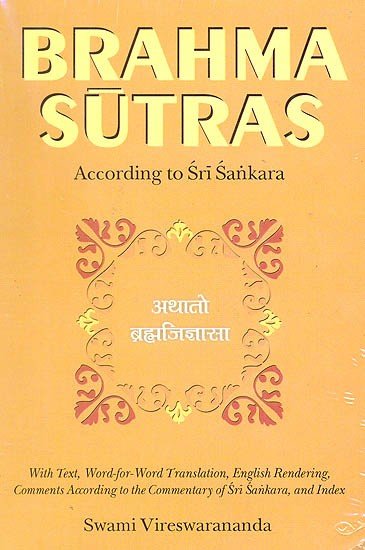Brahma Sutras (Shankara Bhashya)
by Swami Vireshwarananda | 1936 | 124,571 words | ISBN-10: 8175050063
This is the English translation of the Brahma-sutras including the commentary (Bhashya) of Shankara. The Brahma-sutra (or, Vedanta-sutra) is one of the three canonical texts of the Vedanta school of Hindu philosophy and represents an early exposition the Vedantic interpretation of the Upanishads. This edition has the original Sanskrit text, the r...
Chapter III, Section IV, Adhikarana X
Adhikarana summary: One who has taken the vow of lifelong celibacy (Sannyasa) cannot revert back to his former stages of life
Sutra 3,4.40
तद्भूतस्य तु नातद्भावः, जैमिनेरपि, नियमातद्रूपाभावेभ्यः ॥ ४० ॥
tadbhūtasya tu nātadbhāvaḥ, jaiminerapi, niyamātadrūpābhāvebhyaḥ || 40 ||
tadbhūtasya—For one who has attained that (the highest Asrama); tu—but; na—no; atadbhāvaḥ—ceasing from that; jaimineḥ—of Jaimini (is this opinion); api—also; niyama-atadrūpa-abhāvebhyaḥ—on account of restrictions prohibiting such reversion.
40. But for one who has risen to the highest Asrama (i.e. Sannyasa) there is no reverting (to the preceding ones), on account of restrictions prohibiting such reversion. Jaimini also (is of this opinion).
The question whether one who has embraced Sannyasa can go back to the previous Asrama is taken up for discussion. This Sutra says that he cannot, because the Sruti expressly forbids it. “He is to go to the forest he is not to return from there.” But there are no rules allowing a reversion, like those which sanction the ascent to higher Asramas. It is also against approved custom. So one cannot revert from Sannyasa.
